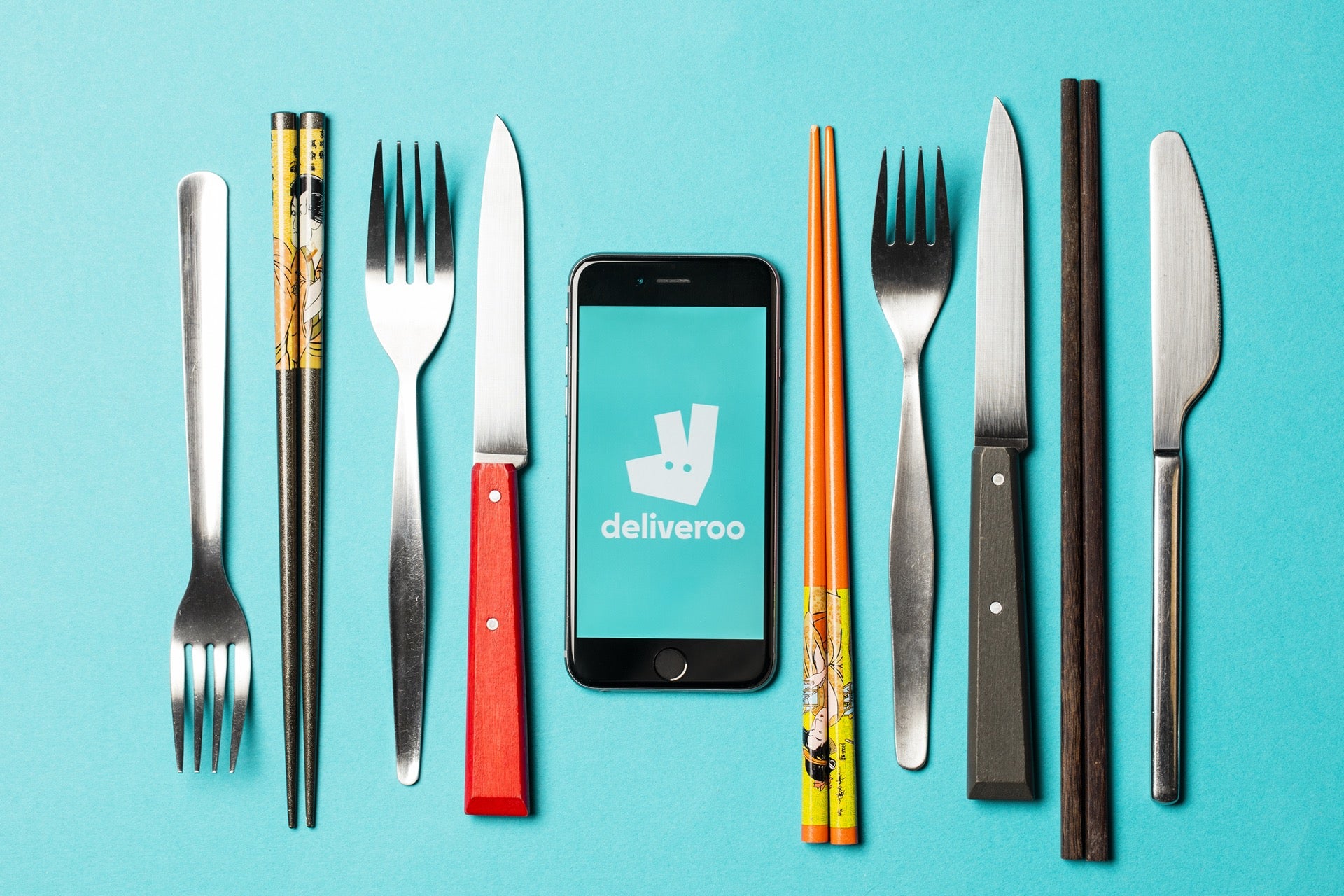
Food delivery unicorn Deliveroo has sliced the price of its stock at tomorrow’s initial public offering (IPO). The company originally said it would seek to cash in as much as £8.8bn through the London Stock Exchange float. However, it has now shifted the goalposts to seek out between £7.6bn and £7.85bn, citing “volatile” market conditions as a reason.
The news comes after several of the UK’s biggest investors – including Legal & General, Aviva, Aberdeen Standard and M&G – said they wouldn’t invest in the startup because of its dependence on gig economy workers. Their refusal to back the IPO coincided with the gig economy business model increasingly coming under fire from industry stakeholders, experts and market analysts.
Andrew Millington, head of UK Equities at Aberdeen Standard, told the BBC that “we wouldn’t be comfortable that the way in which [Deliveroo’s] workforce is employed is sustainable.”
Deliveroo has maintained through the years that its 100,000 riders are independent, self-employed contractors and therefore not entitled to the minimum wage or holiday pay.
Last week, the company estimated a price range of between £3.90 and £4.60 per share for the float on Wednesday, but trimmed the price range to between £3.90 and £4.10 per share.
While maintaining in a statement that it has “received very significant demand from institutions across the globe”, Deliveroo said that the “volatile global market conditions for IPOs” had made it choose “to price responsibly within the initial range and at an entry point that maximises long-term value for our new institutional and retail investors.”
How well do you really know your competitors?
Access the most comprehensive Company Profiles on the market, powered by GlobalData. Save hours of research. Gain competitive edge.

Thank you!
Your download email will arrive shortly
Not ready to buy yet? Download a free sample
We are confident about the unique quality of our Company Profiles. However, we want you to make the most beneficial decision for your business, so we offer a free sample that you can download by submitting the below form
By GlobalDataThe move comes after a number of US tech stocks fell below their issue prices after IPOs in recent weeks.
Investors, customers and employees are increasingly pushing for gig economy businesses to change their models and to recategorise their couriers as employees rather than self-employed contractors.
Earlier in March, Uber announced that the drivers on its UK ride-hailing business would now be categorised as employees rather that self-employed contractors from now on. The news came on the back of a Supreme Court ruling in February saying that Uber drivers should be categorised as employees and enjoy benefits like the minimum wage and paid holidays. Uber Eats drivers were not included in the recategorisation.
A recent GlobalData report on what to look out for in the technology, media and telecoms industries highlighted that the pressure to change will force tech businesses to become more diverse, improve employees’ working conditions and to grow more sustainable. On that note, companies like Amazon, Facebook and Google are all also being challenged to overhaul their old human resource approaches.
Deliveroo’s IPO comes as the food delivery market is set for a major boom in the next few years. Recent thematic research from GlobalData estimated that the food delivery segment of the tech industry will grow at a compound annual growth rate of 8% between 2019 and 2023. That would mean a jump from $201.7bn to $272.8bn within the period.







